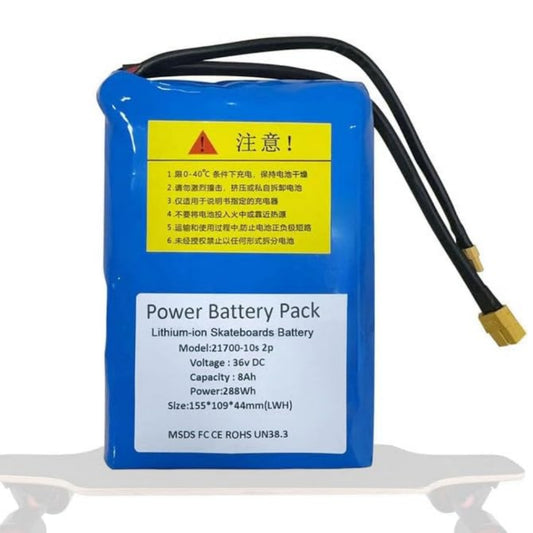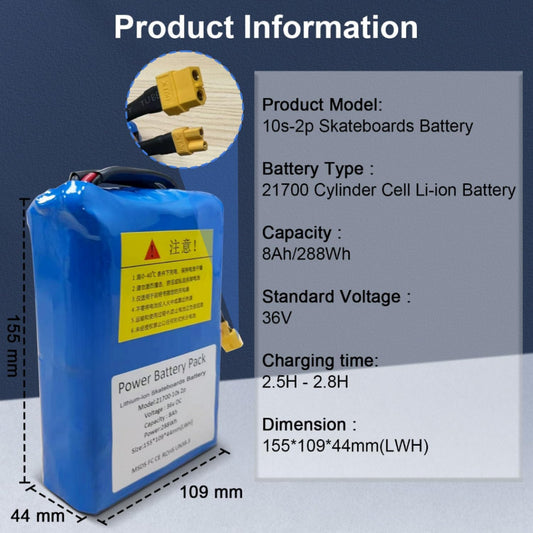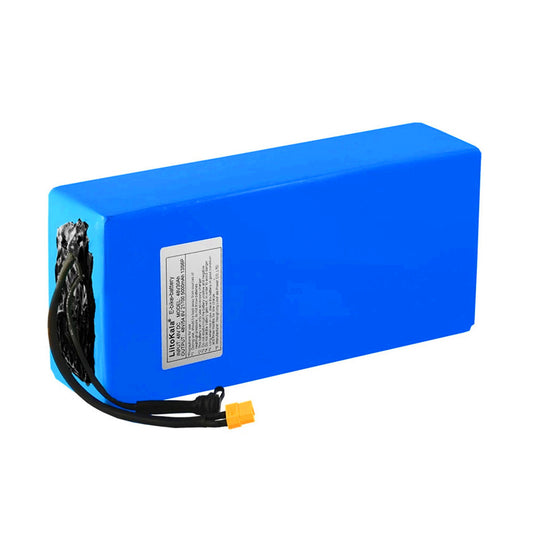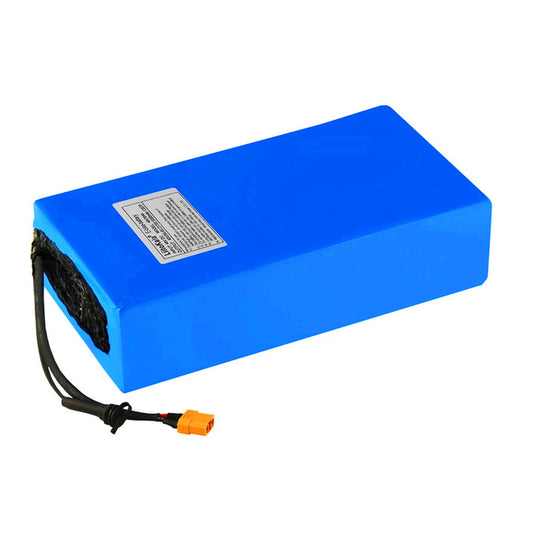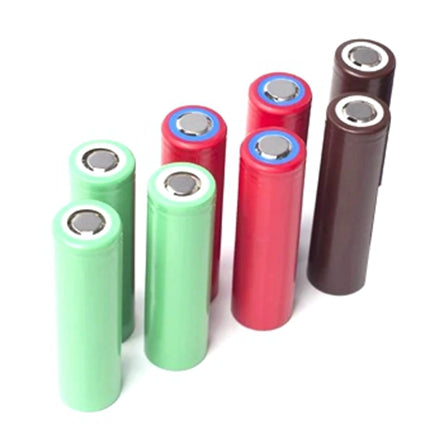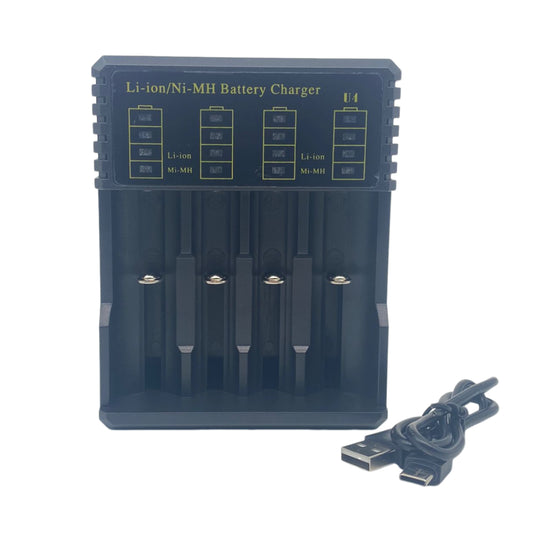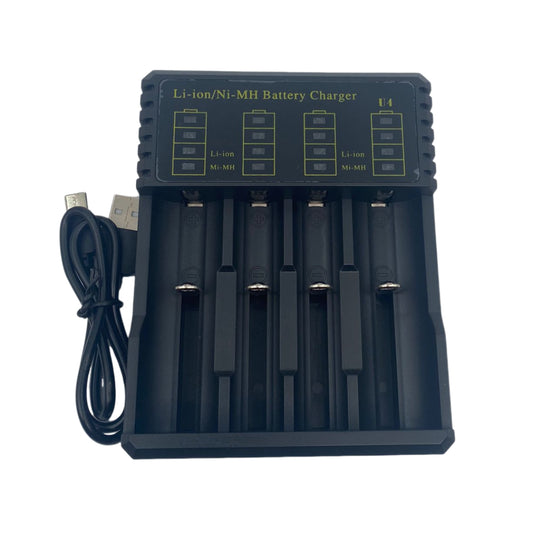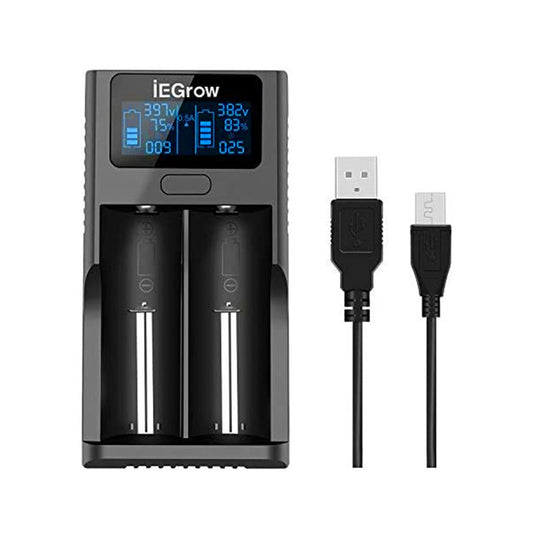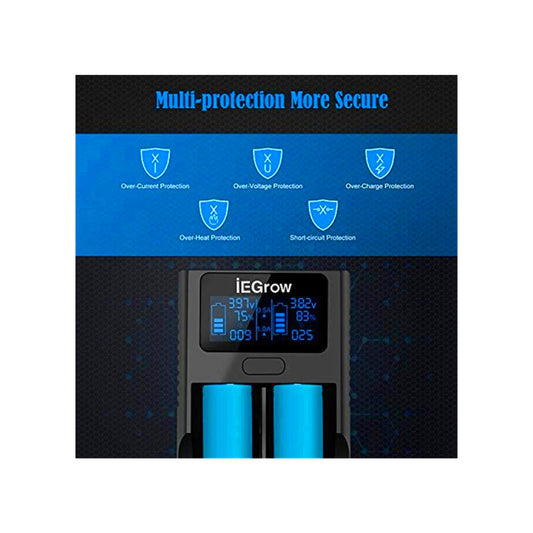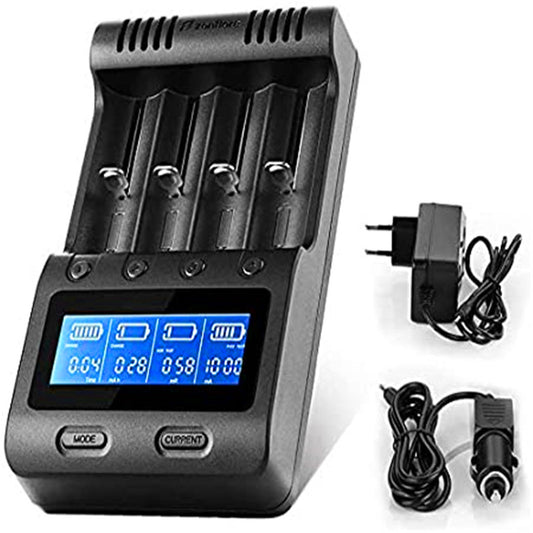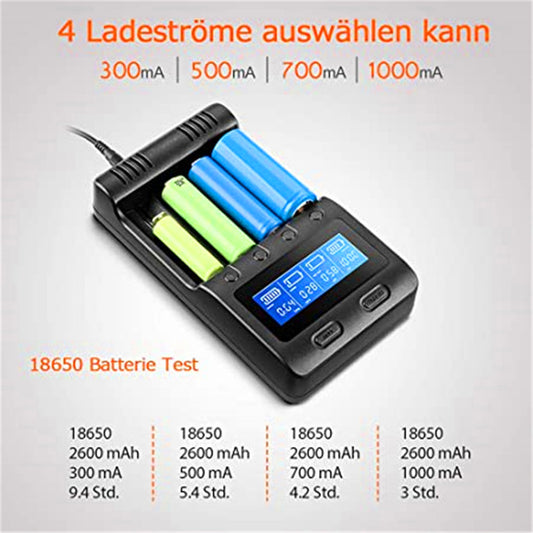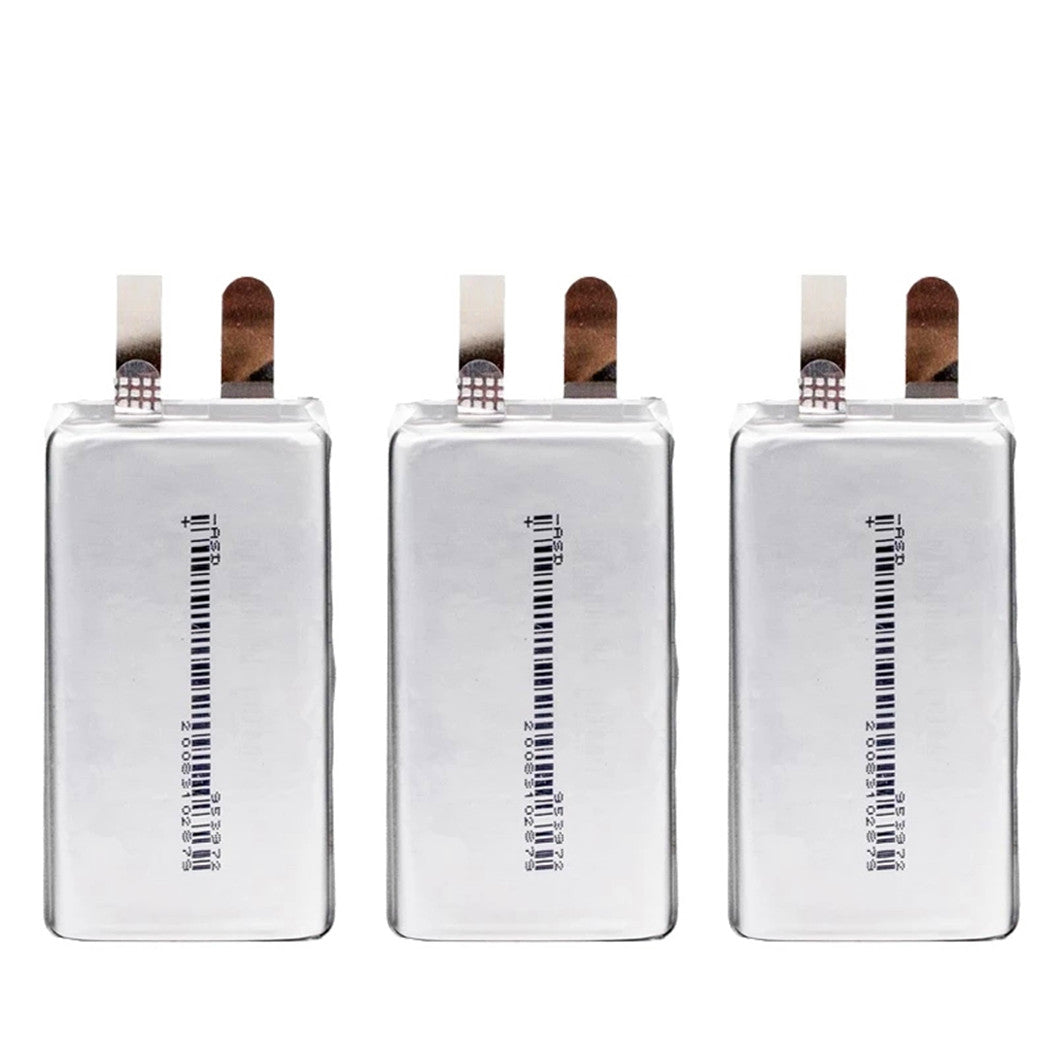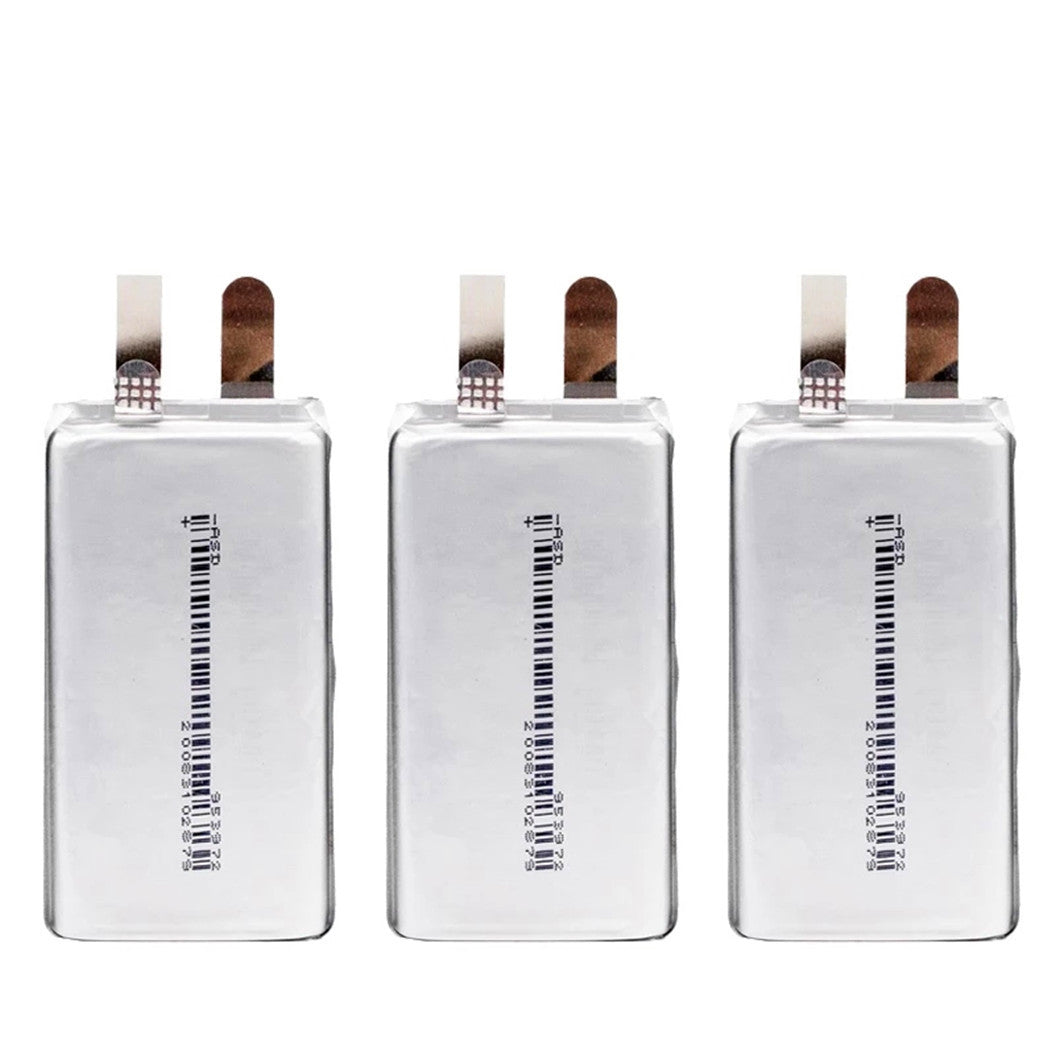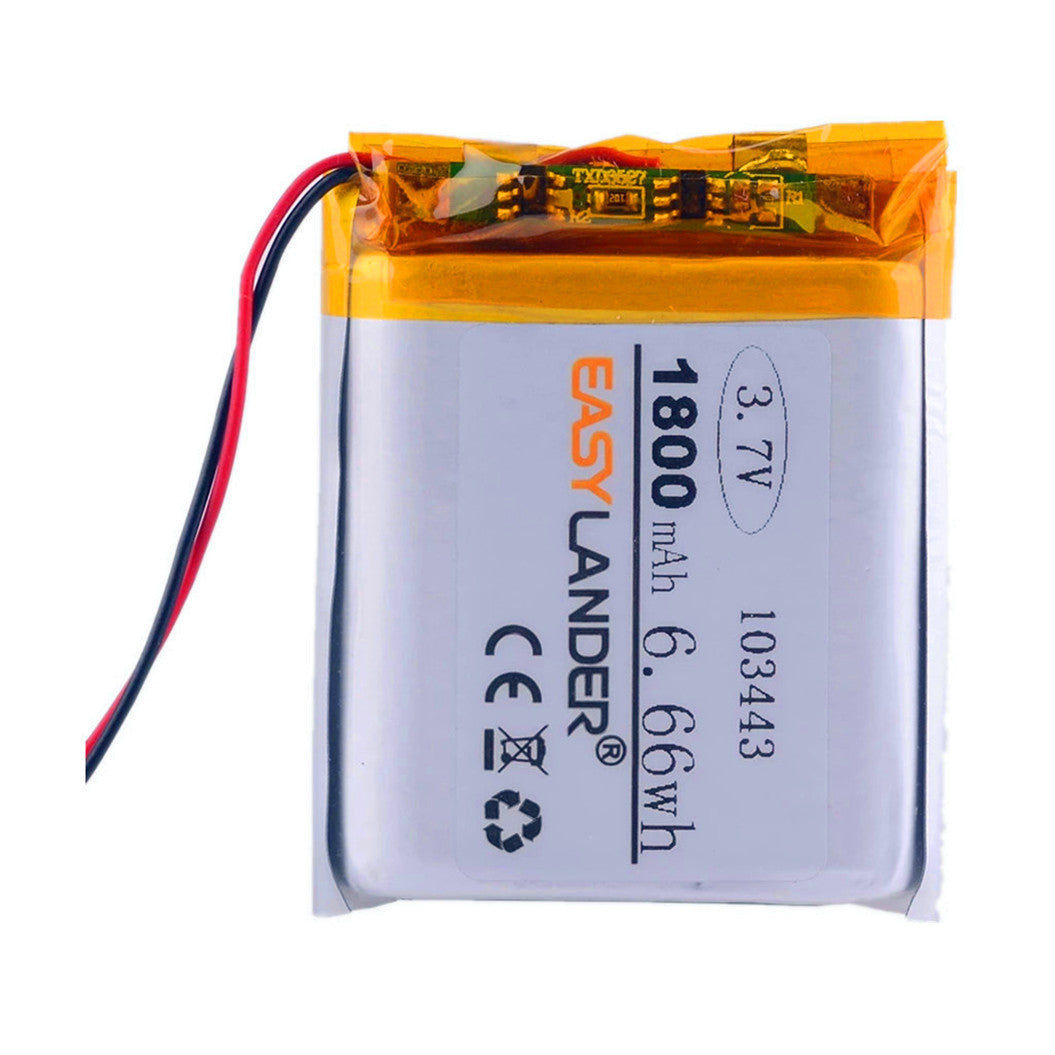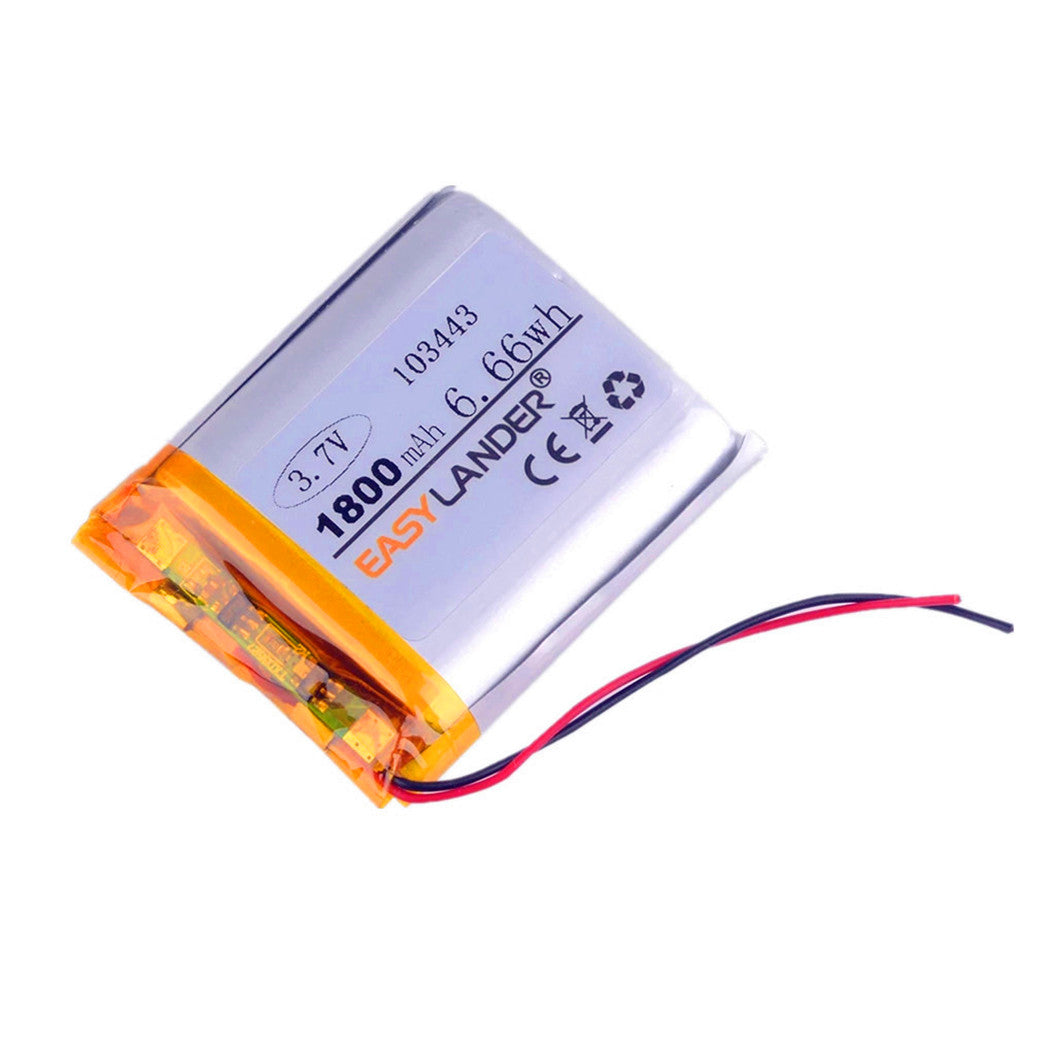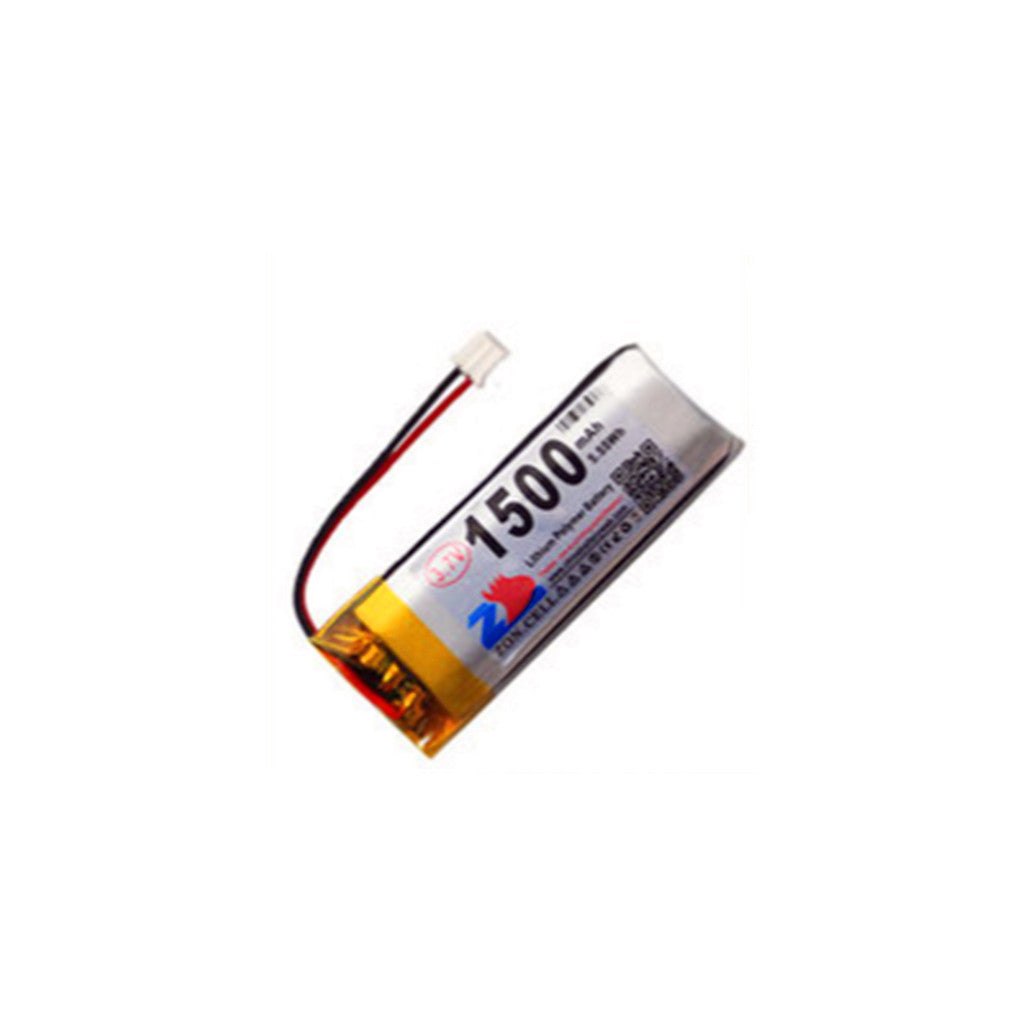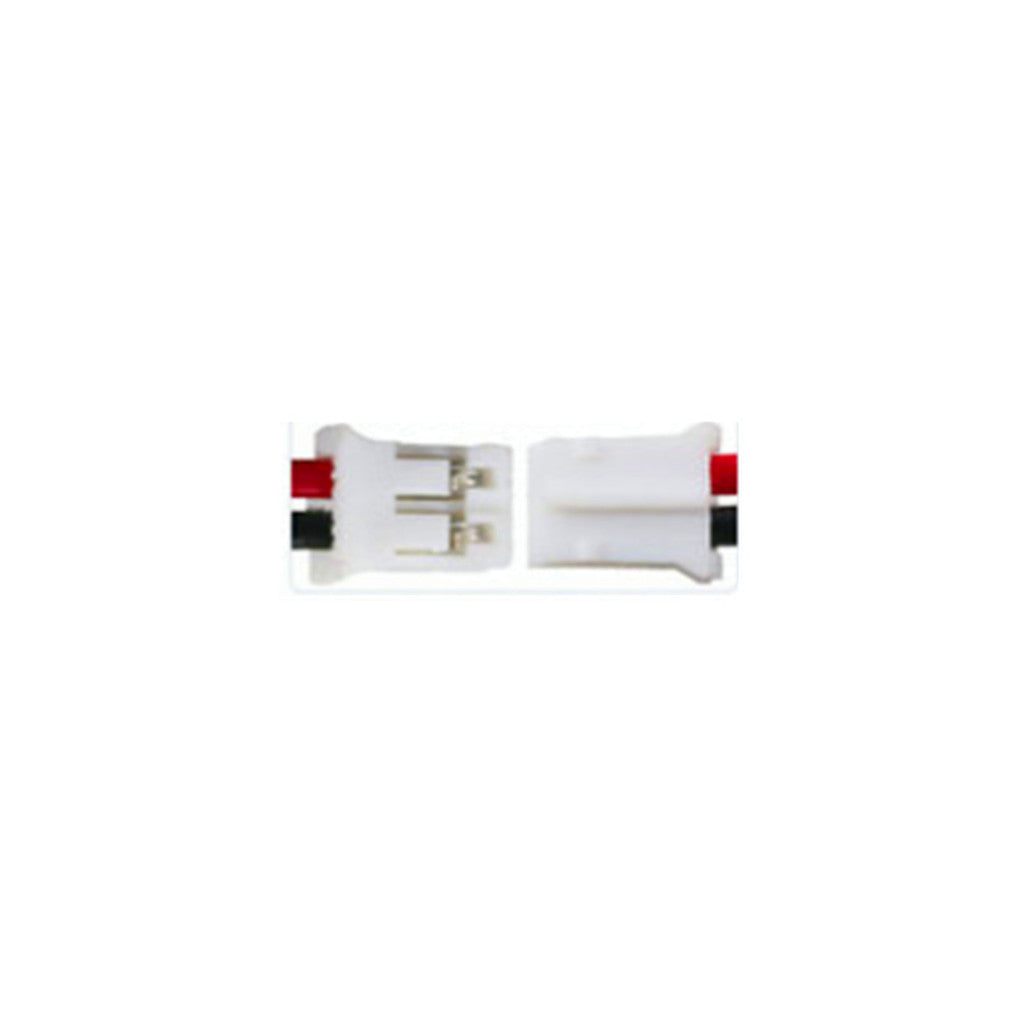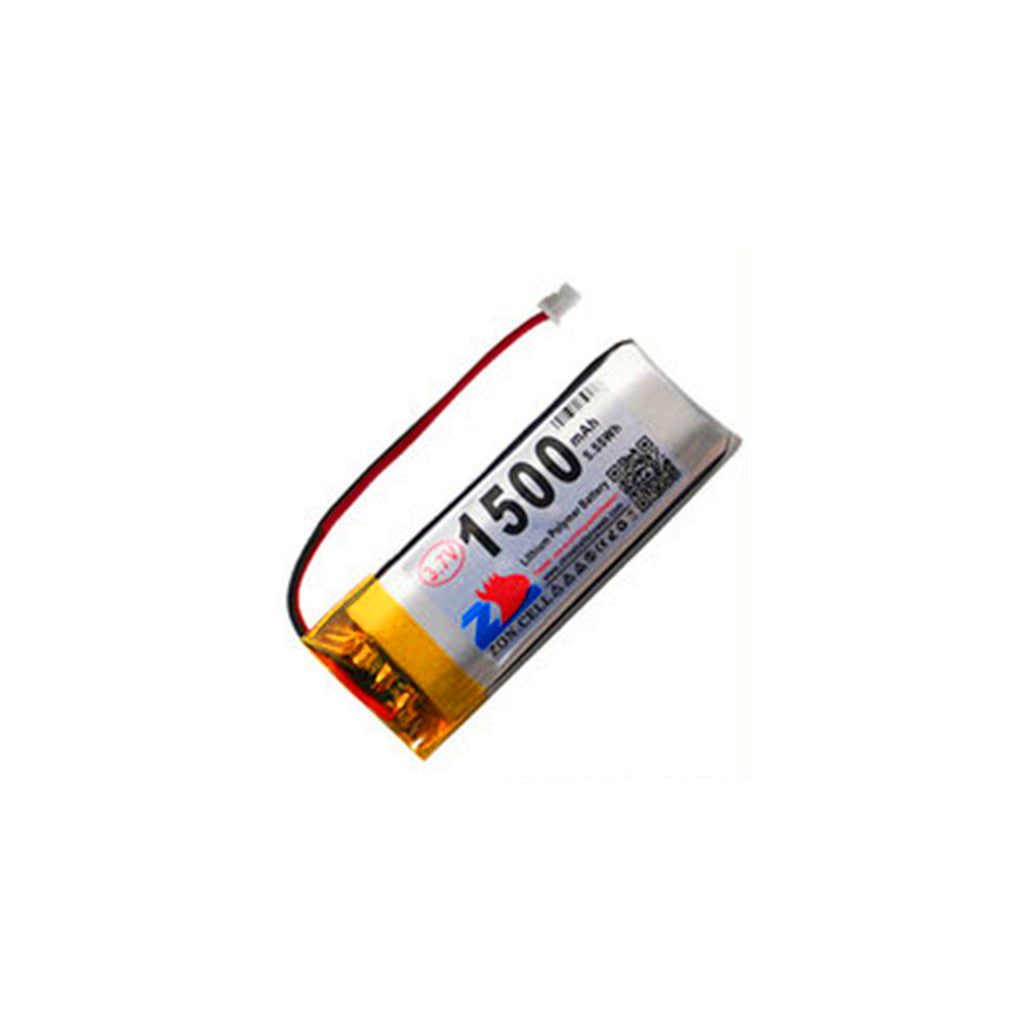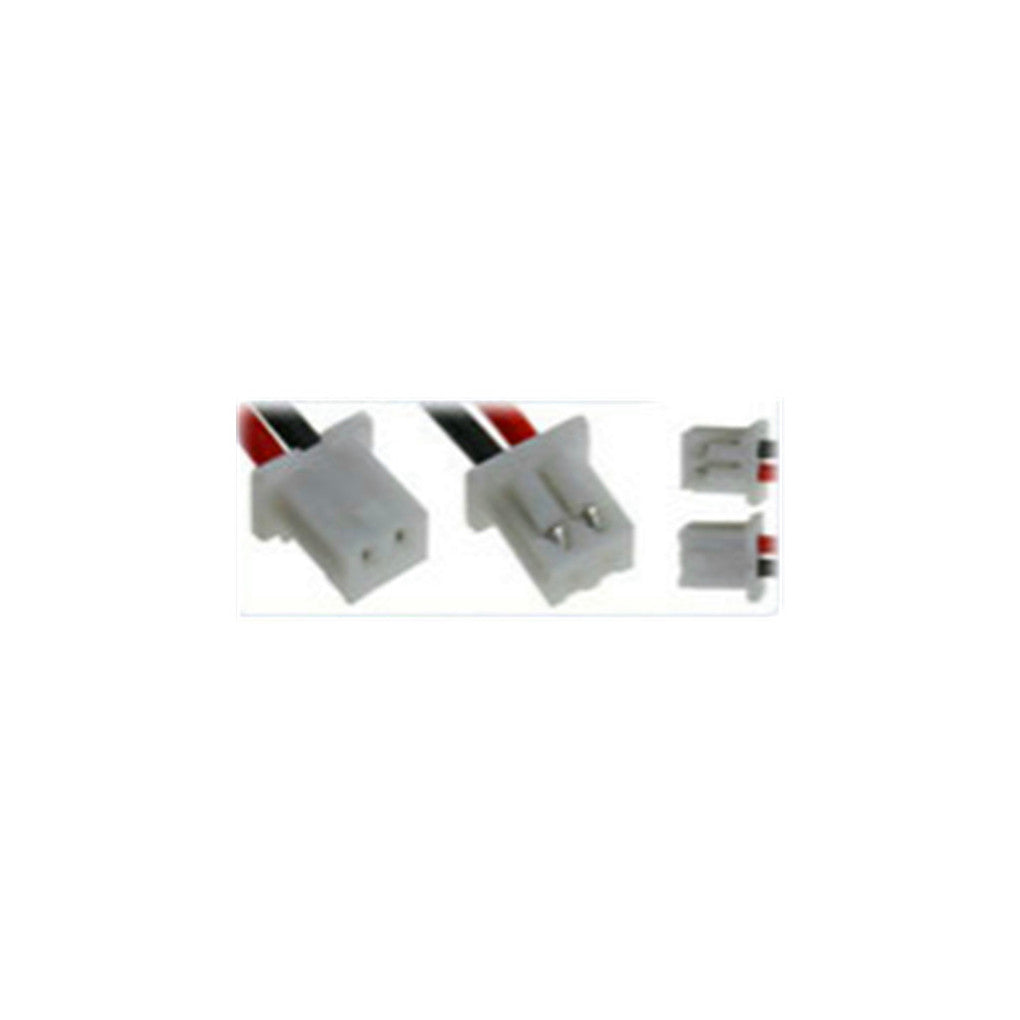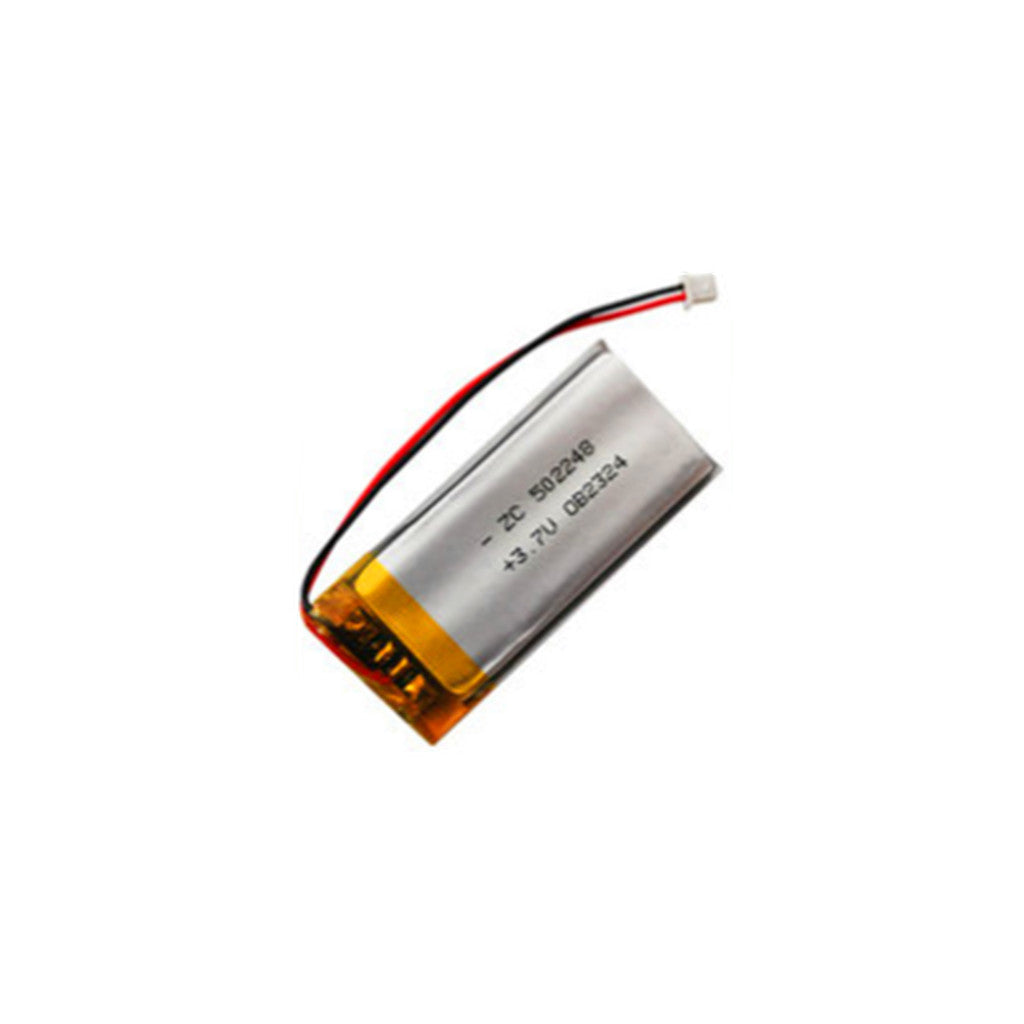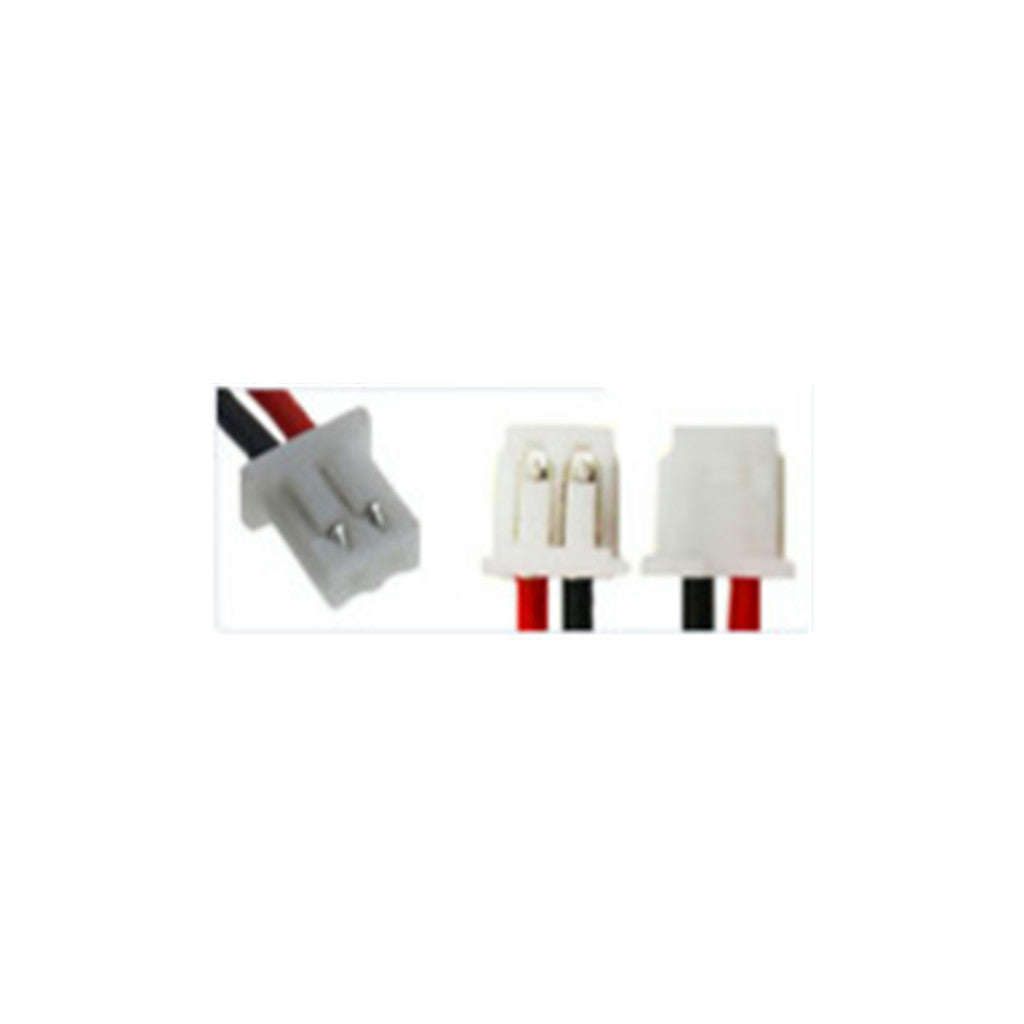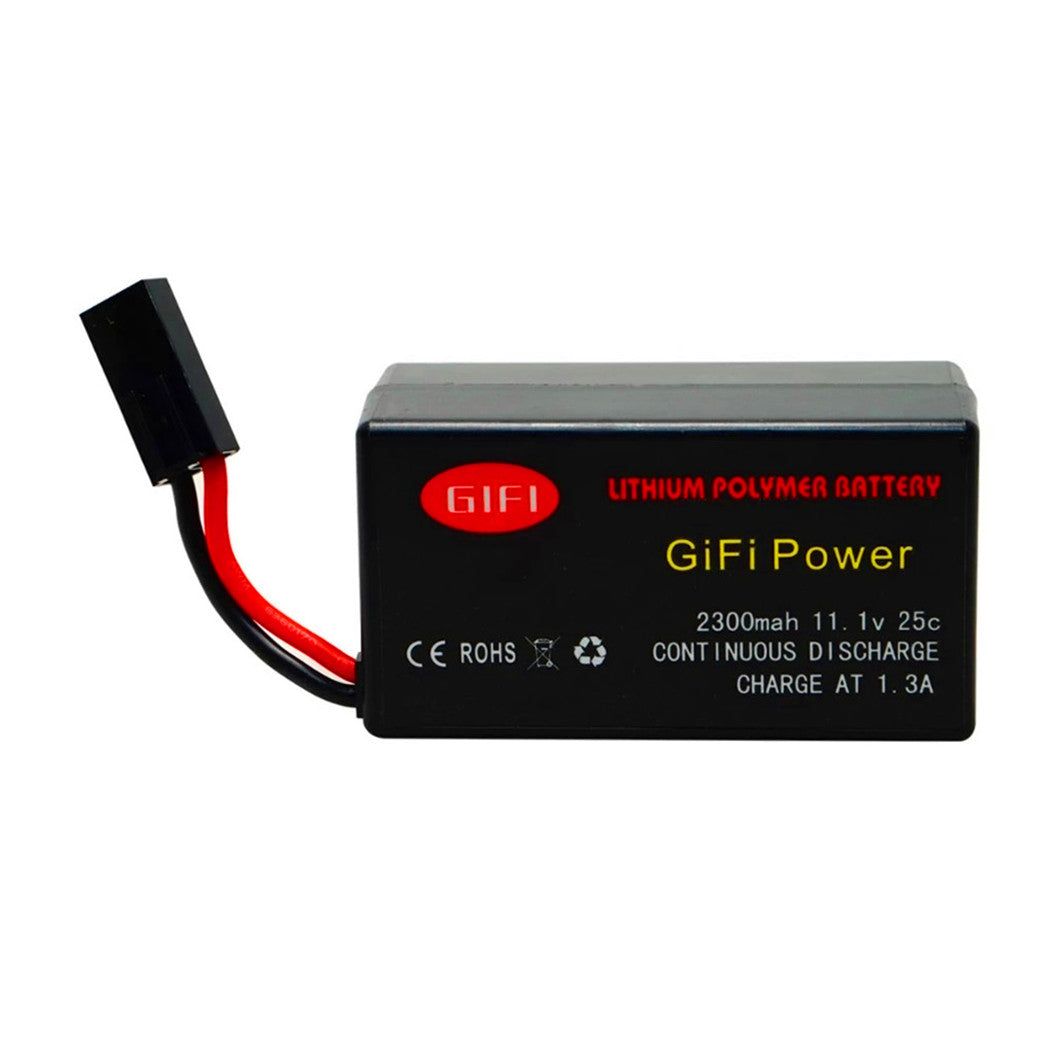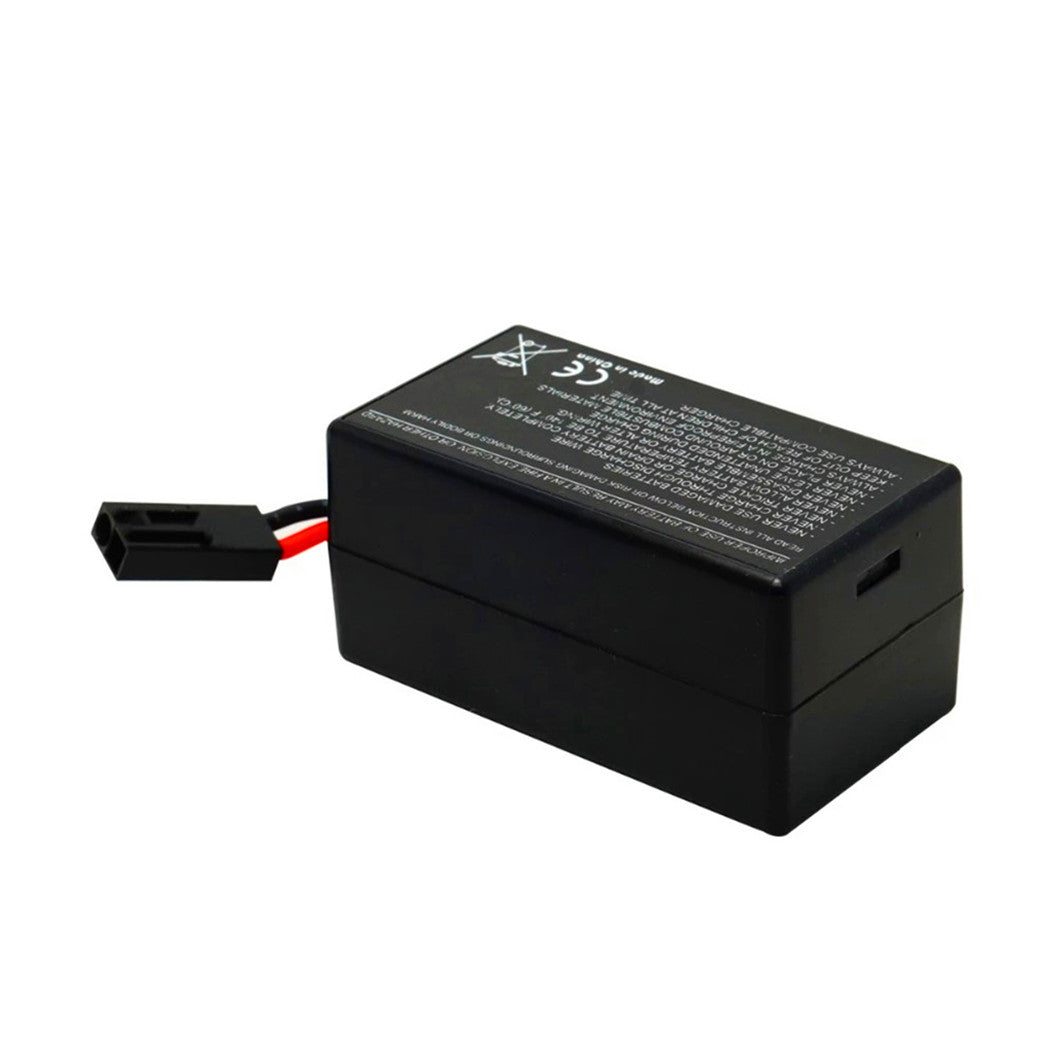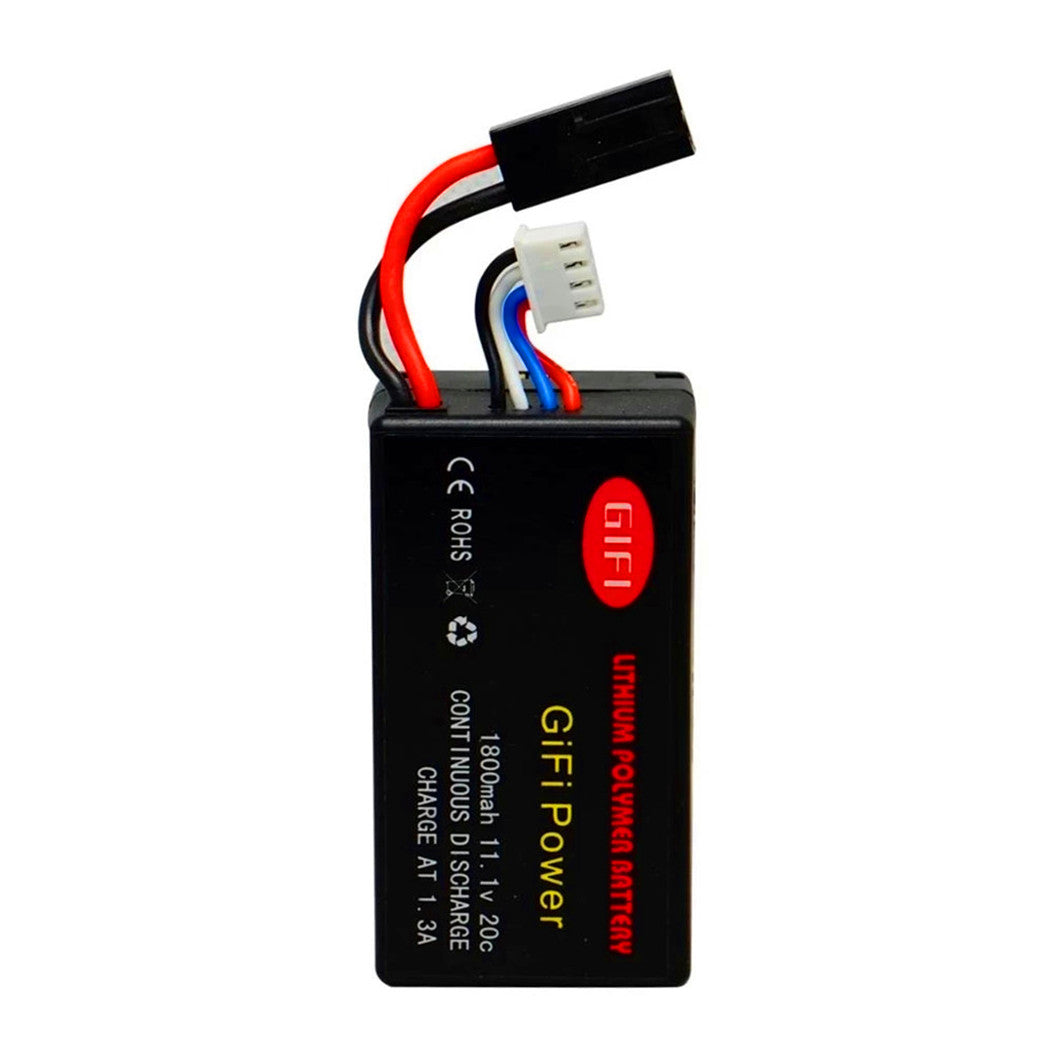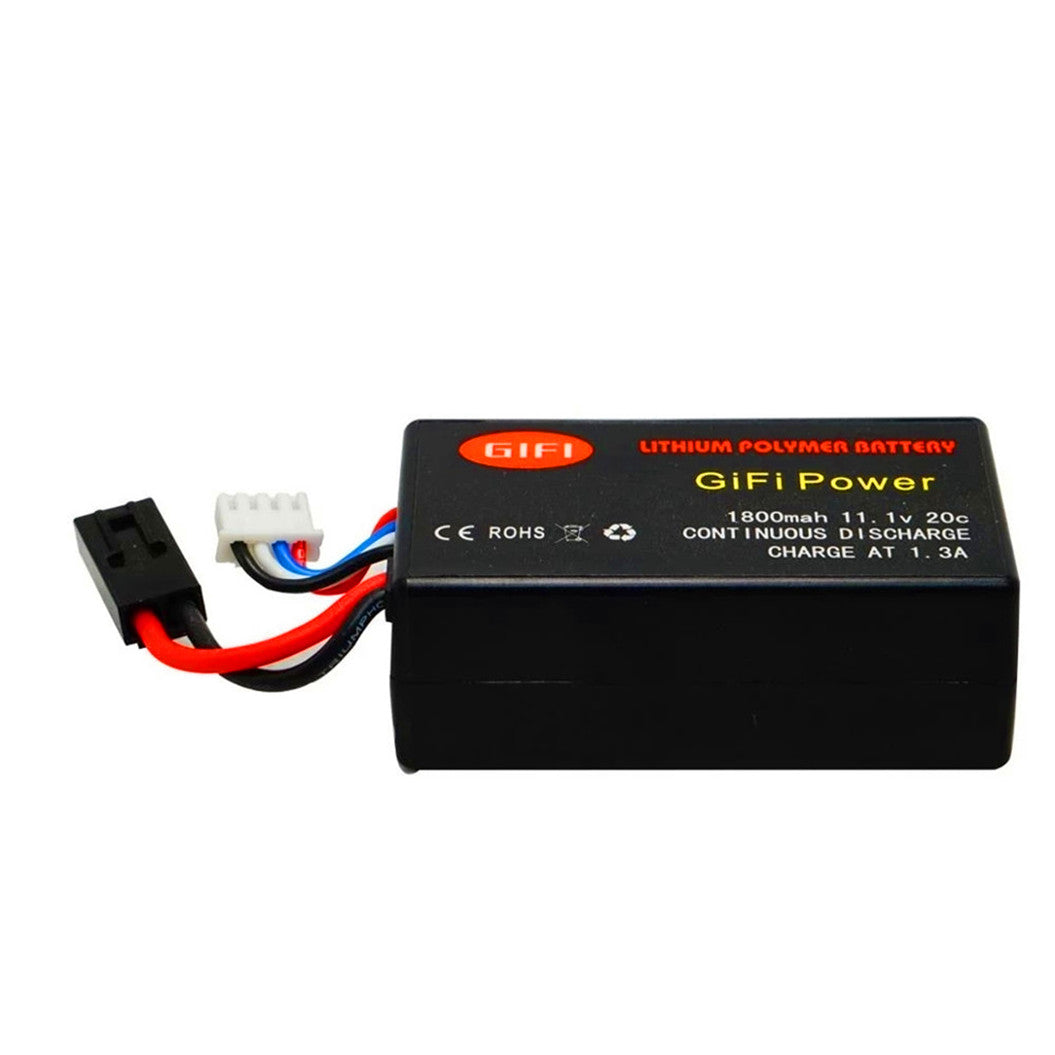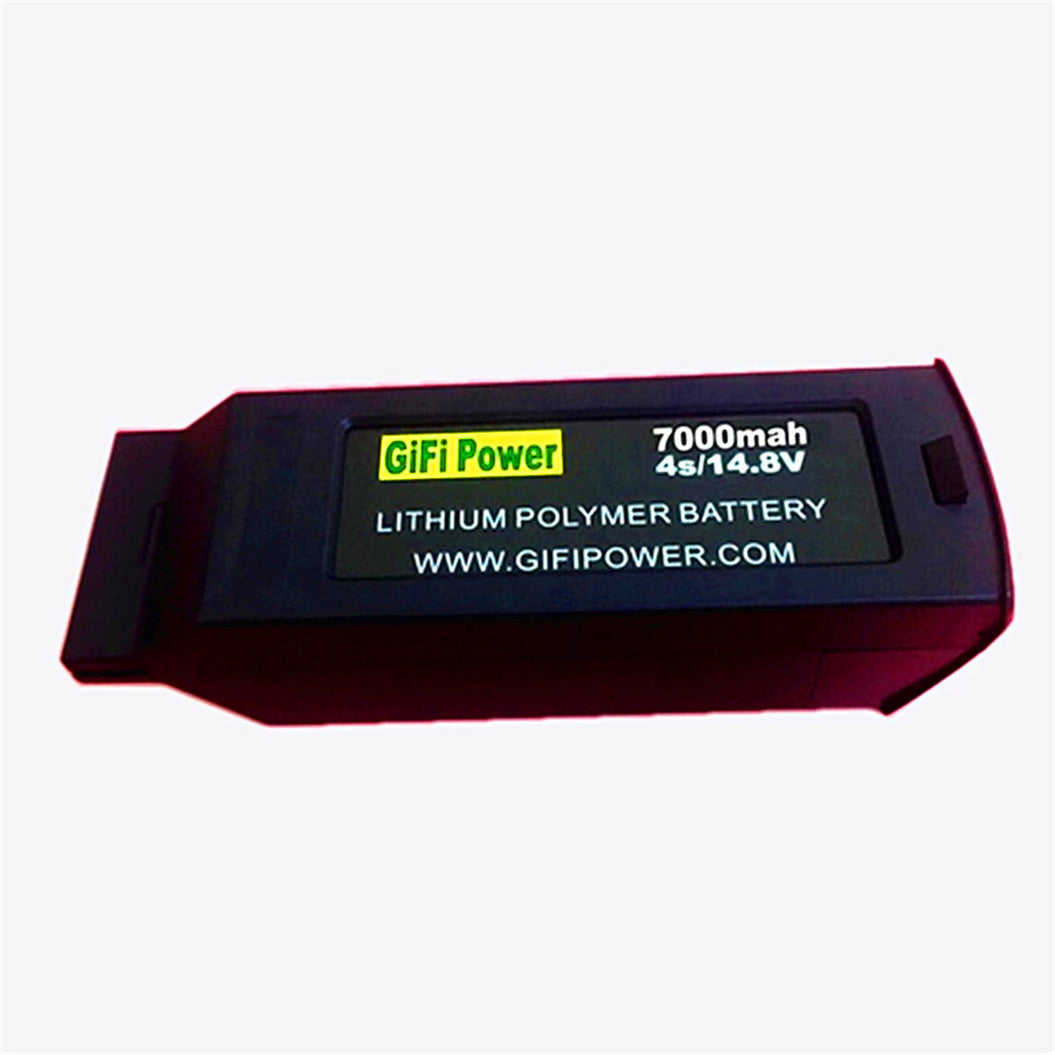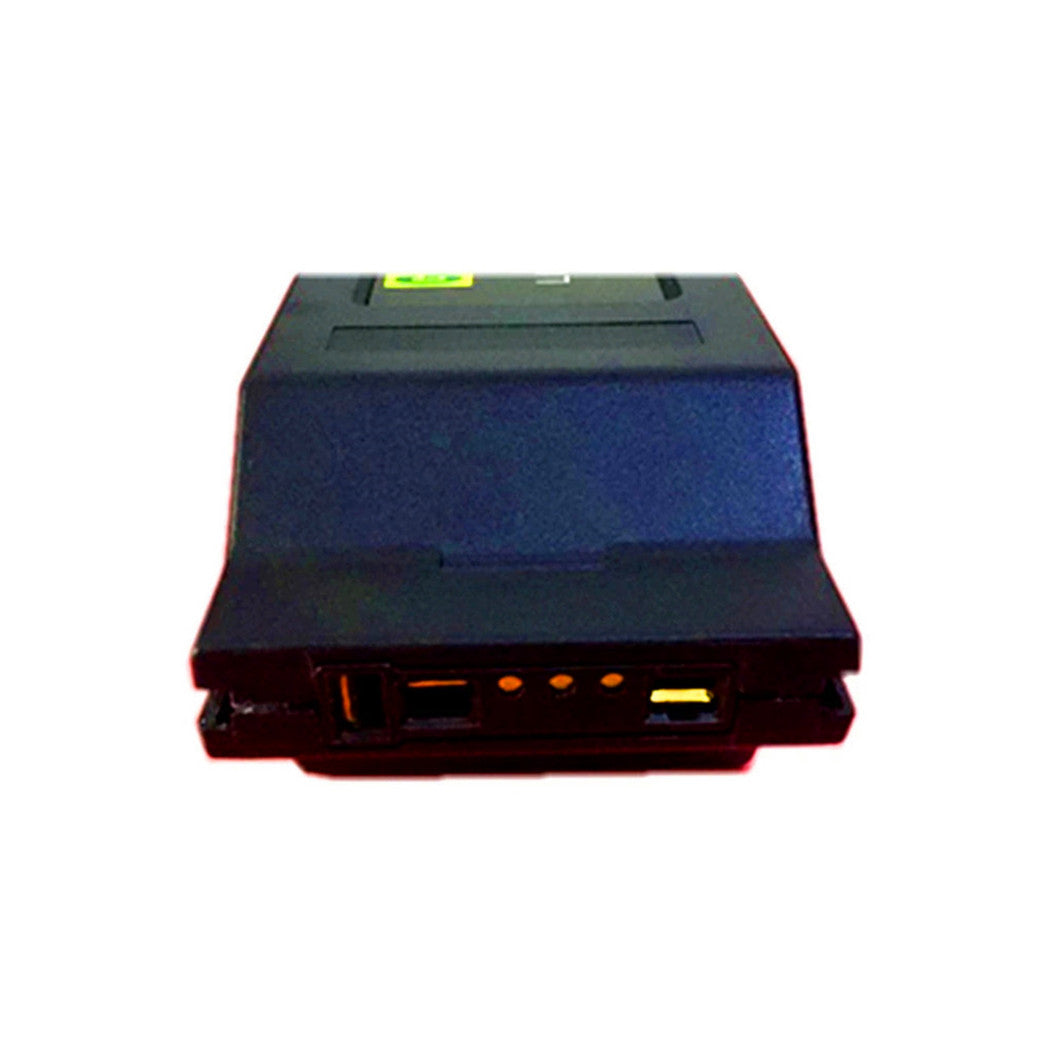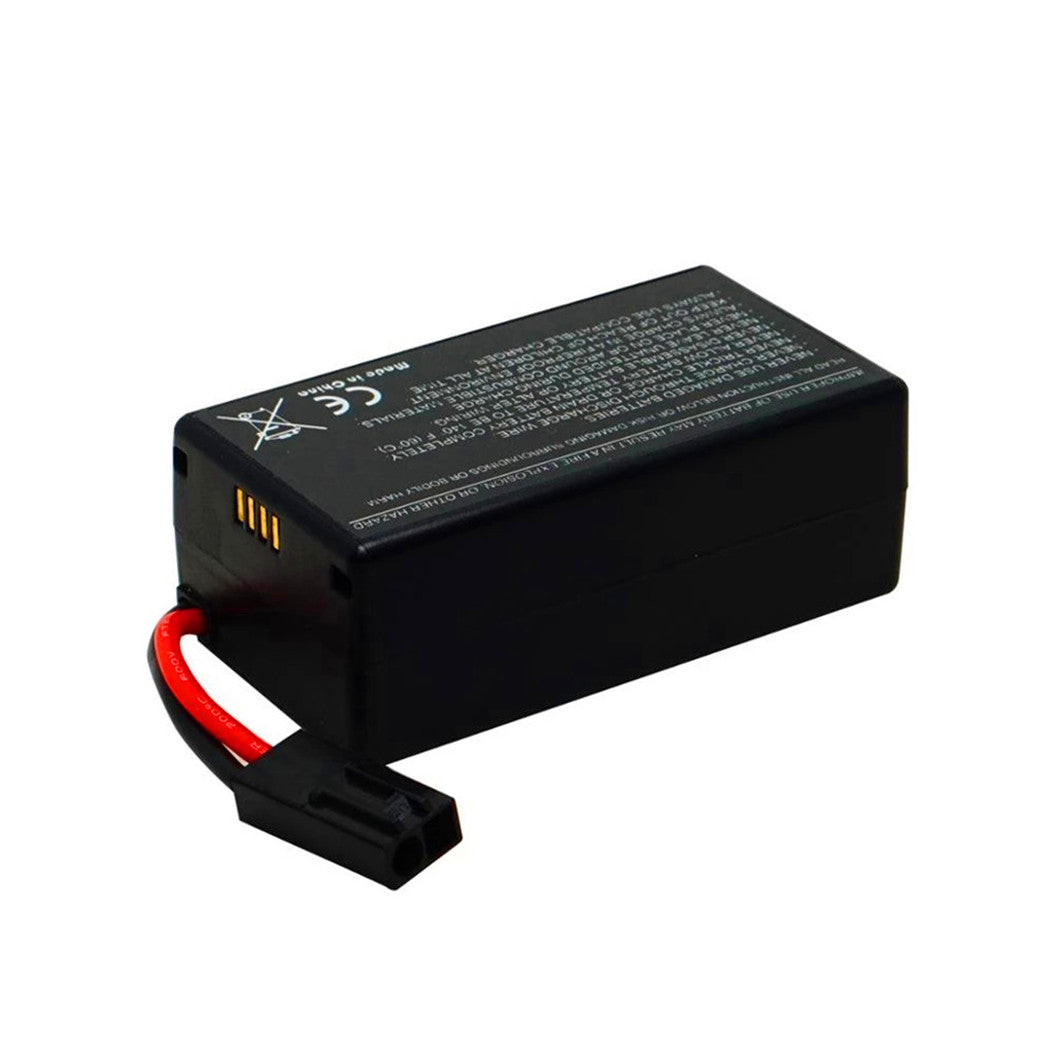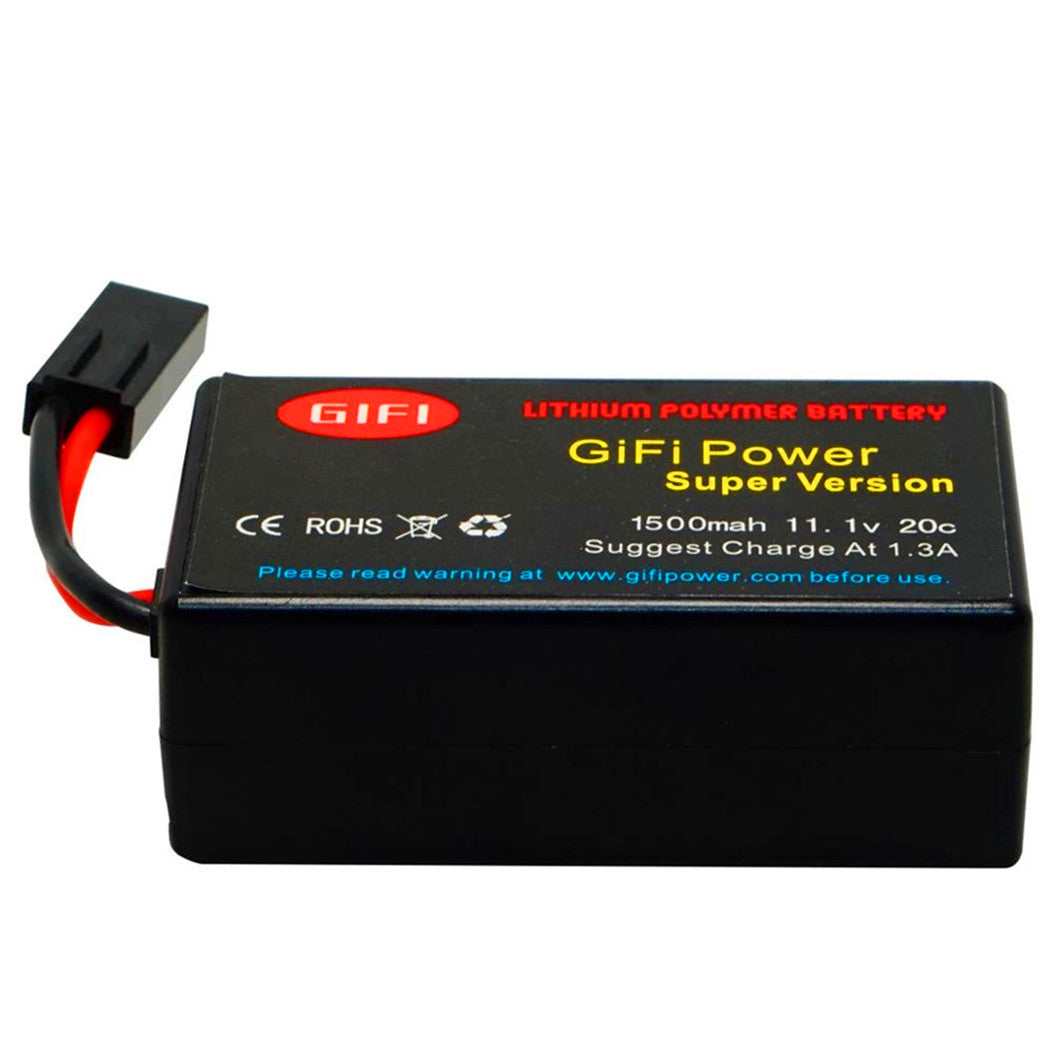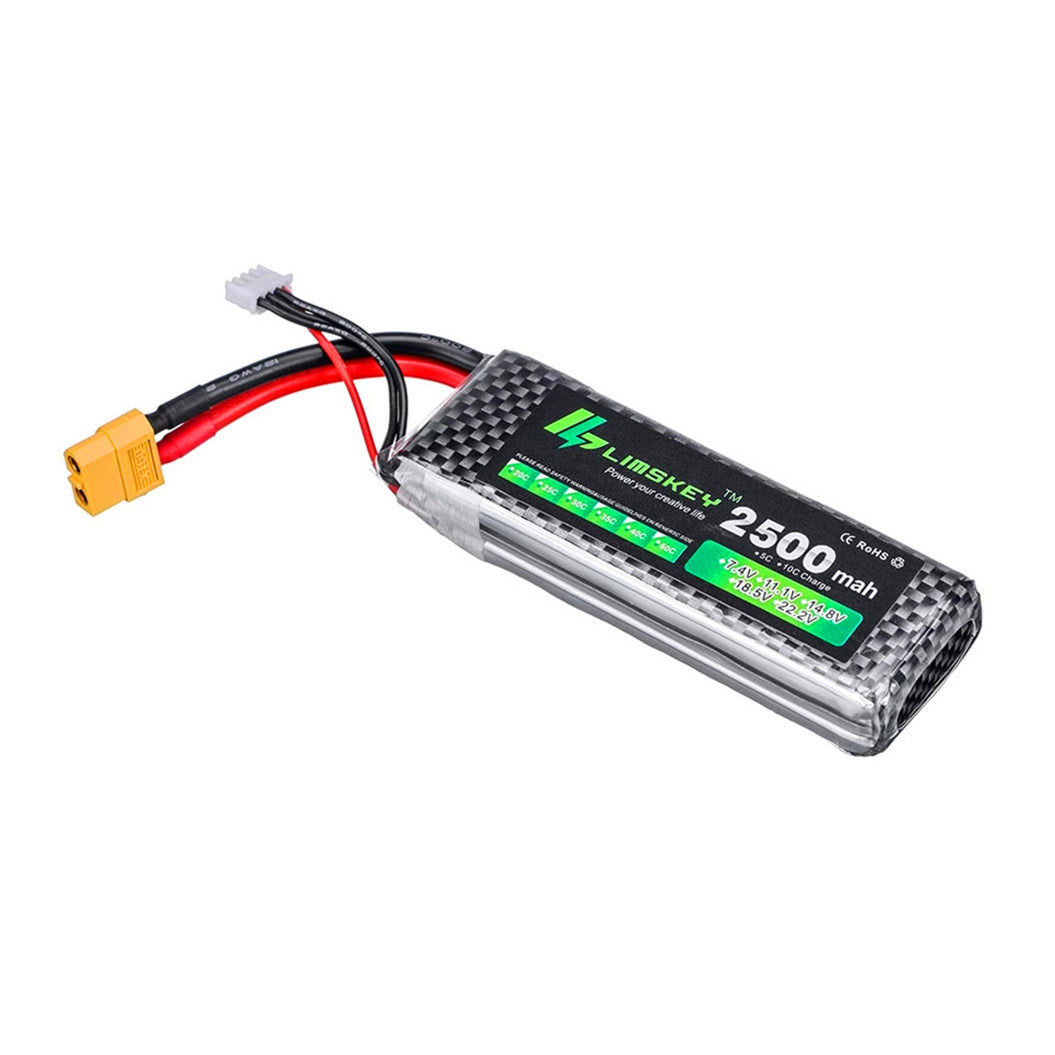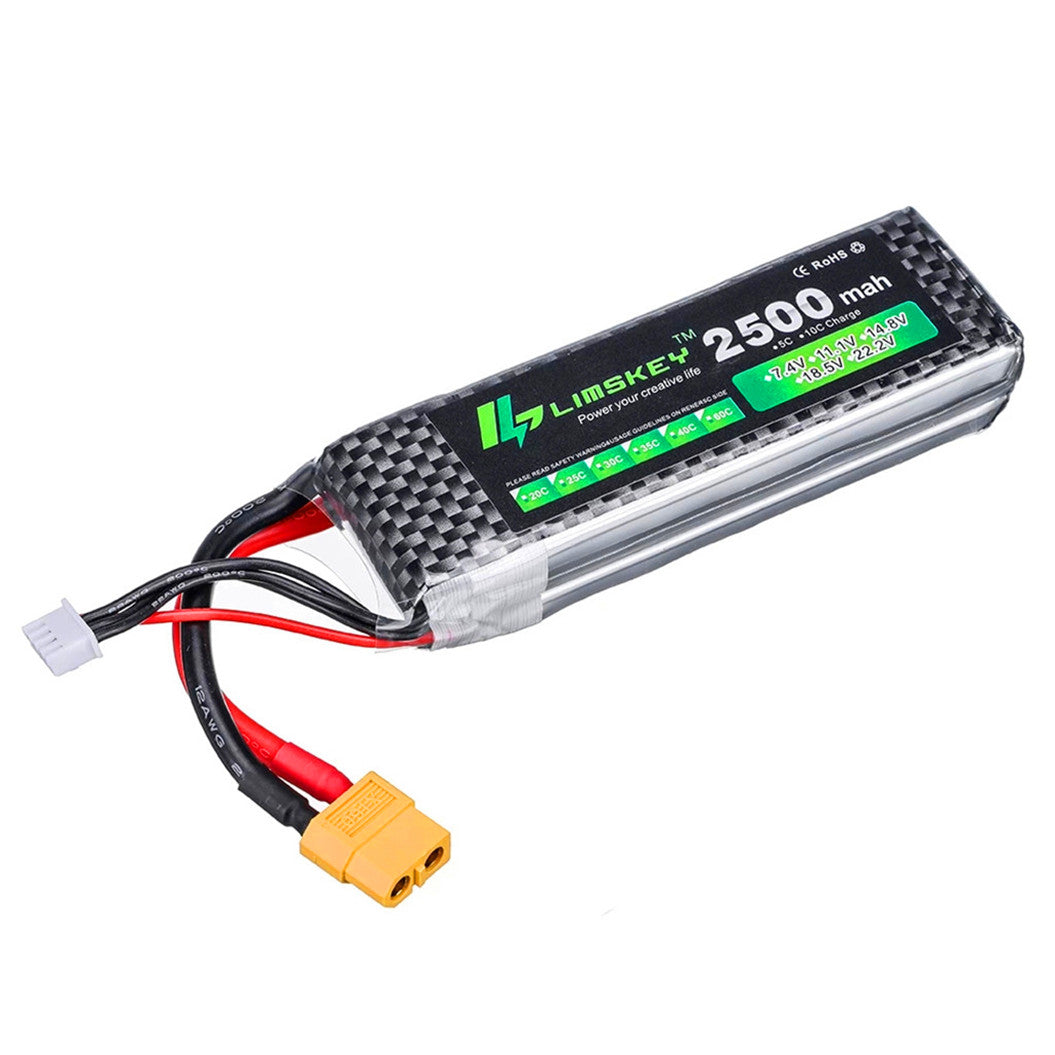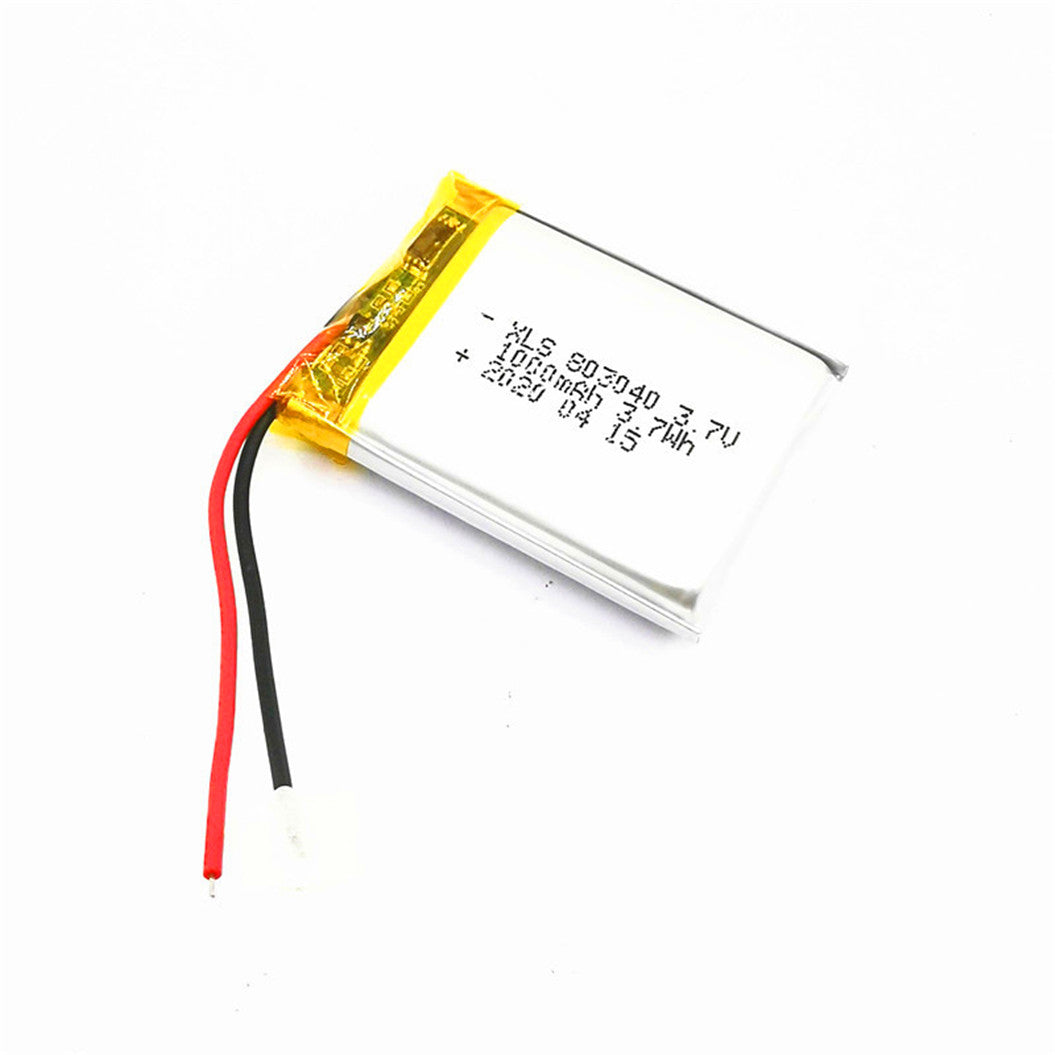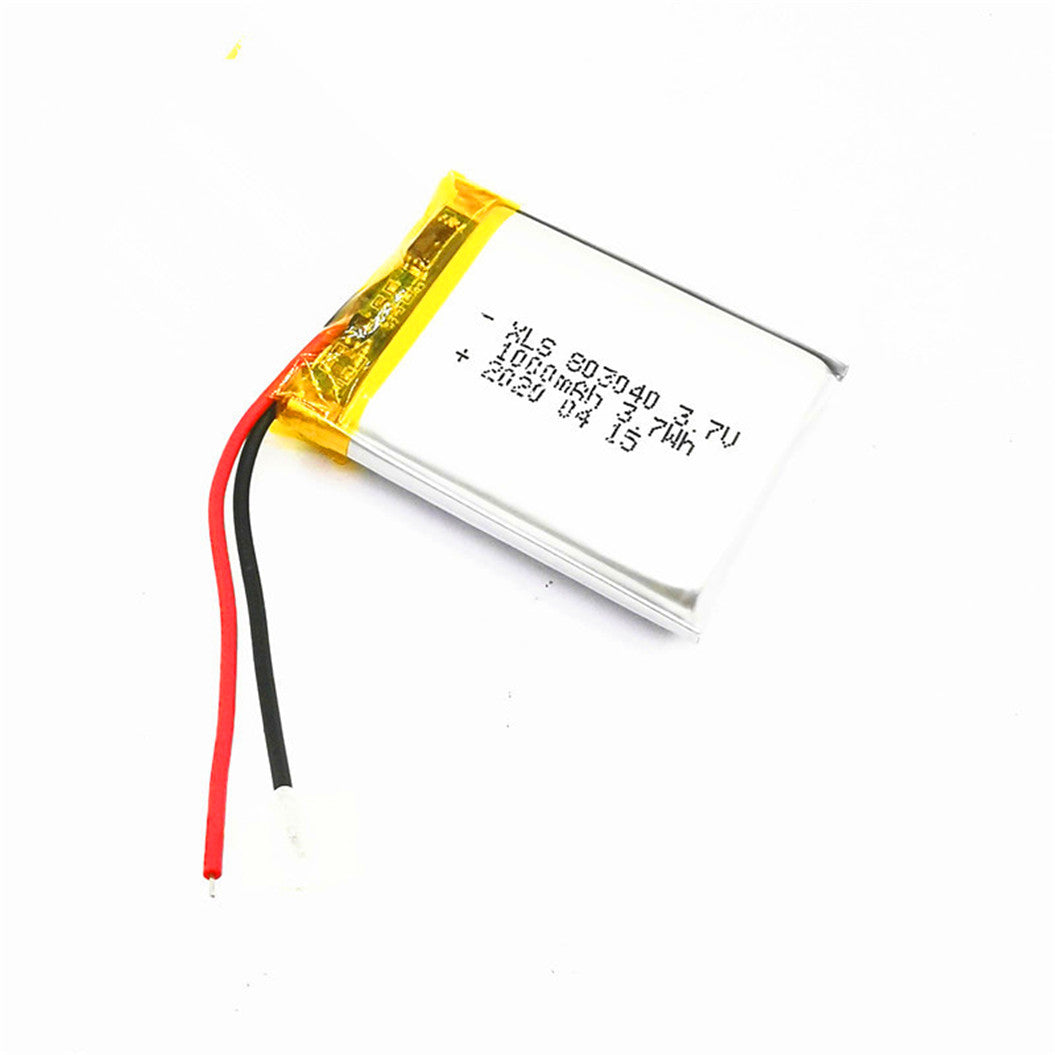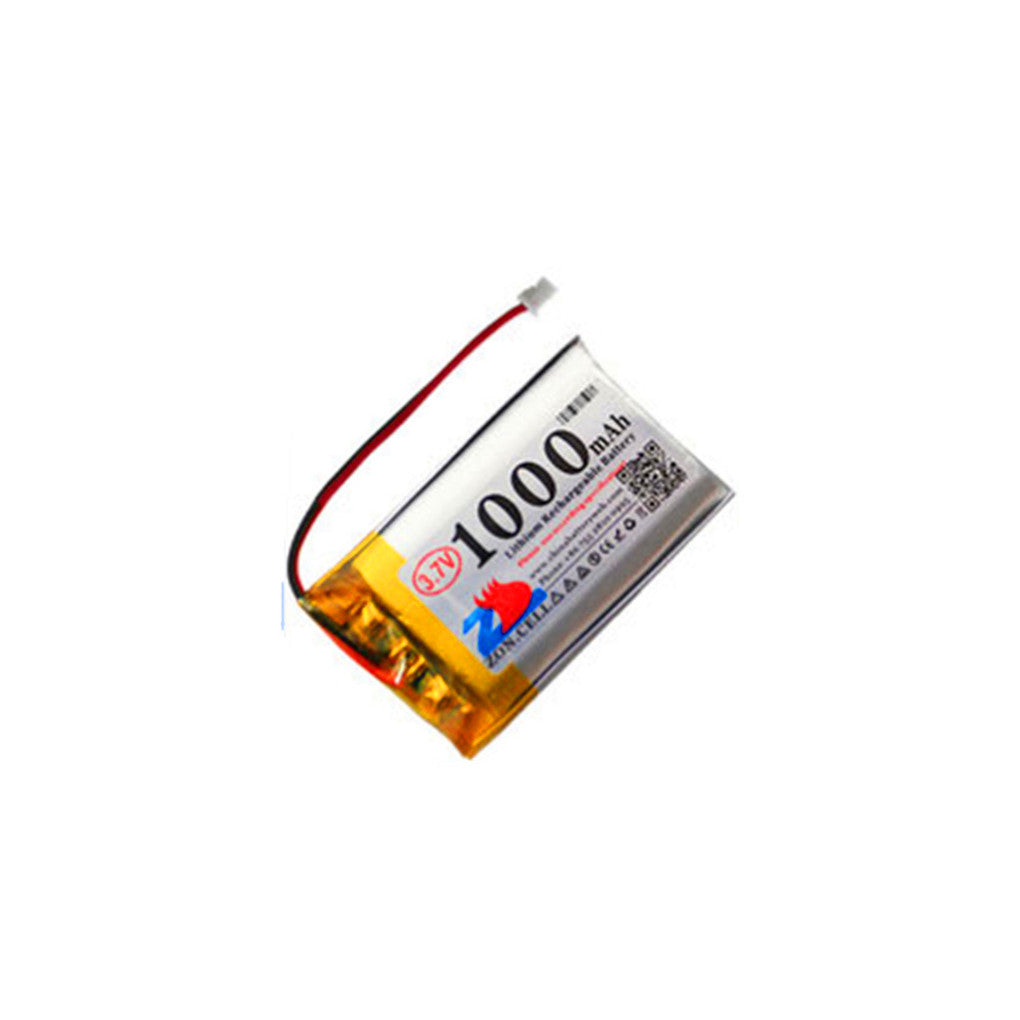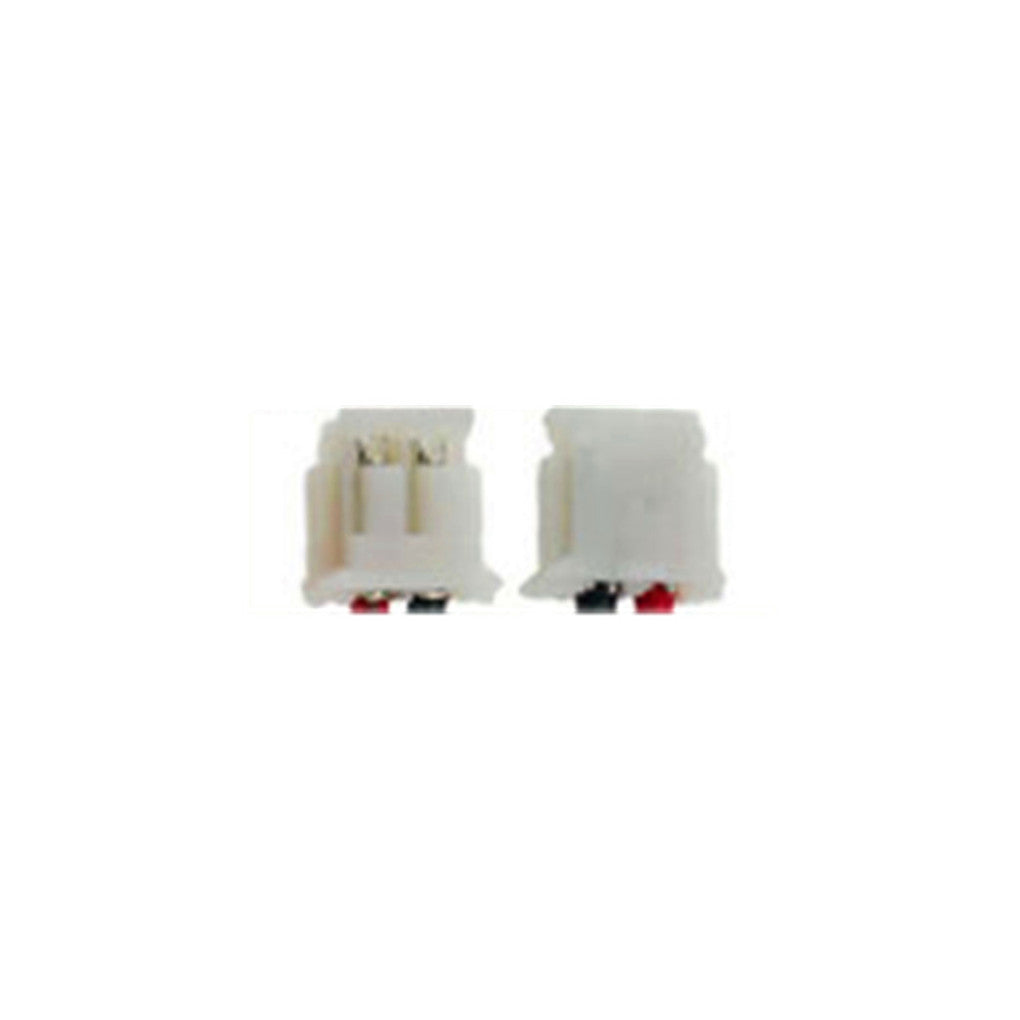-
Fornecedor:BATTERYINT
3 Unidades de Células Bare High-Density 3.8V 3500mAh para DJI Mavic Air 2 Drone (Bateria de Voo Inteligente DIY)
- Preço normal
- $33.60
- Preço normal
-
- Preço de saldo
- $33.60
- Preço unitário
- por
3 Unidades de Células Bare ... -
Fornecedor:BATTERYINT
Bateria de Lítio Polímero 3.7V 1800mAh 103443 para Navegador GPS, DVR de Carro, Rádio TD-V26, JH-MD07D
- Preço normal
- $12.99
- Preço normal
-
- Preço de saldo
- $12.99
- Preço unitário
- por
Bateria de Lítio Polímero 3... -
Fornecedor:BATTERYINT
2x Bateria de Polímero de Lítio 1500mAh 3.7V Plug PH2.0zh 102050 para Dispositivos e Instrumentos Portáteis
- Preço normal
- $21.84
- Preço normal
-
- Preço de saldo
- $21.84
- Preço unitário
- por
2x Bateria de Polímero de L... -
Fornecedor:BATTERYINT
2x Bateria de Polímero de Lítio 1500mAh 3.7V Plugue Frontal MX1.25 102050 para Dispositivos e Instrumentos Portáteis
- Preço normal
- $21.84
- Preço normal
-
- Preço de saldo
- $21.84
- Preço unitário
- por
2x Bateria de Polímero de L... -
Fornecedor:BATTERYINT
Bateria de Lítio Polímero 3.7V 600mAh MX1.25 com Conector Frontal para Alto-Falante Bluetooth e Dispositivos Portáteis (502248)
- Preço normal
- $14.40
- Preço normal
-
- Preço de saldo
- $14.40
- Preço unitário
- por
Bateria de Lítio Polímero 3... -
Fornecedor:BATTERYINT
Bateria de Lítio-Polímero 11.1V 2300mAh para Parrot AR.Drone 2.0 Power Edition
- Preço normal
- $38.99
- Preço normal
-
- Preço de saldo
- $38.99
- Preço unitário
- por
Bateria de Lítio-Polímero 1... -
Fornecedor:BATTERYINT
Bateria de Lítio-Polímero 11.1V 1800mAh para Parrot AR.DRONE 2.0
- Preço normal
- $25.99
- Preço normal
-
- Preço de saldo
- $25.99
- Preço unitário
- por
Bateria de Lítio-Polímero 1... -
Fornecedor:BATTERYINT
14.8V 7000mAh 4S Bateria de Lítio-Polímero RC para Quadcopter Yuneec TYPHOON H
- Preço normal
- $109.99
- Preço normal
-
- Preço de saldo
- $109.99
- Preço unitário
- por
14.8V 7000mAh 4S Bateria de... -
Fornecedor:BATTERYINT
Bateria de Polímero de Lítio 11.1V 1500mAh 20C para Quadcopter Parrot AR.Drone 2.0
- Preço normal
- $28.99
- Preço normal
-
- Preço de saldo
- $28.99
- Preço unitário
- por
Bateria de Polímero de Líti... -
Fornecedor:BATTERYINT
Bateria LiPo 11.1V 2500mAh 3S de Alta Performance para Carro RC, Avião e Helicóptero
- Preço normal
- $24.99
- Preço normal
-
- Preço de saldo
- $24.99
- Preço unitário
- por
Bateria LiPo 11.1V 2500mAh ... -
Fornecedor:BATTERYINT
3.7V 803040 1000mAh Bateria de Polímero de Lítio para e-book, tablet, brinquedo, telefone móvel
- Preço normal
- $9.99
- Preço normal
-
- Preço de saldo
- $9.99
- Preço unitário
- por
3.7V 803040 1000mAh Bateria... -
Fornecedor:BATTERYINT
Bateria de Lítio Polímero 2x3.7V 1000mAh Plugue Frontal ZH1.25 802540
- Preço normal
- $13.99
- Preço normal
-
- Preço de saldo
- $13.99
- Preço unitário
- por
Bateria de Lítio Polímero 2...
Showing 97 -108 of 345 items
1. How to Charge Lipo Battery?
These are the safe charging tips for LiPo batteries:
- Always use a charger specifically designed for LiPo batteries to prevent overcharging or undercharging.
- Before charging, set the charger’s current and voltage to match the battery’s specifications, typically at 1C, which is twice the battery’s capacity.
- During charging, place the lithium ion polymer battery in a fireproof bag or on a flat surface that is free of flammable materials.
- Closely monitor the lithium polymer battery during charging and ensure that it is not left unattended for extended periods.
- Always use a charger specifically designed for LiPo batteries to prevent overcharging or undercharging.
- Before charging, set the charger’s current and voltage to match the battery’s specifications, typically at 1C, which is twice the battery’s capacity.
- During charging, place the lithium ion polymer battery in a fireproof bag or on a flat surface that is free of flammable materials.
- Closely monitor the lithium polymer battery during charging and ensure that it is not left unattended for extended periods.
2. How to Store Lipo Battery?
When storing Lithium Polymer (LiPo) batteries, they should be kept at approximately 50% charge, which will help to prolong battery life. The lithium ion polymer battery should be stored in a dry, cool environment, away from direct sunlight and extreme temperatures.
In addition, batteries should be stored in a fireproof bag or special safety box to prevent accidents. In addition, if not used for a long period, perform a light charge and discharge every few months to maintain battery performance.
In addition, batteries should be stored in a fireproof bag or special safety box to prevent accidents. In addition, if not used for a long period, perform a light charge and discharge every few months to maintain battery performance.
3. What Is the Lifespan of a Lipo Battery?
In general, lithium polymer batteries can support approximately 300 to 500 charge/discharge cycles if properly used and maintained. To extend battery life, avoid overcharging and over-discharging, and keep the lithium ion polymer battery at the proper temperature during use and storage.
4. How to Prevent Lipo Battery from Expansion and Explosion?
These tips below prevent lithium polymer (lipo) batteries from expanding or explosion:
- Ensure that you are using a charger that is specifically designed for LiPo batteries and that you strictly follow the battery’s charging specifications.
- Avoid exposing the lithium polymer battery to extreme temperatures or direct sunlight during charging and use.
- Ensure that the lithium ion polymer battery is not physically damaged. Regularly inspect the battery for any signs of wear or damage.
- If the LiPo batteries show signs of swelling, discontinue use immediately to prevent further risks such as expansion or explosion.
- Ensure that you are using a charger that is specifically designed for LiPo batteries and that you strictly follow the battery’s charging specifications.
- Avoid exposing the lithium polymer battery to extreme temperatures or direct sunlight during charging and use.
- Ensure that the lithium ion polymer battery is not physically damaged. Regularly inspect the battery for any signs of wear or damage.
- If the LiPo batteries show signs of swelling, discontinue use immediately to prevent further risks such as expansion or explosion.
5. What Is the Difference Between a 4s Lipo Battery and a 3s LiPo Battery?
The main differences between 4s lipo batteries and 3s LiPo batteries are the number of cells and the total voltage. 3s batteries consist of three cells in series and typically have a voltage of 11.1 volts, while 4s batteries consist of four cells in series and typically have a voltage of 14.8 volts.
However, higher voltages may also require electronic equipment to have a higher voltage tolerance, so the voltage compatibility of equipment must be considered when choosing a lithium polymer battery.
However, higher voltages may also require electronic equipment to have a higher voltage tolerance, so the voltage compatibility of equipment must be considered when choosing a lithium polymer battery.
6. How Long Does It Take to Charge a 4s Lipo Battery?
Typically, most 4-cell LiPo batteries take about 1 to 1.5 hours to fully charge when charged at a 1C charge rate (i.e. the current value for the rated capacity of the battery).
For example, a 5000mAh battery will take about 1 hour to fully charge at 5A charge current. Ensure that you use the appropriate charger for your lithium polymer battery to maintain its health and safety.
For example, a 5000mAh battery will take about 1 hour to fully charge at 5A charge current. Ensure that you use the appropriate charger for your lithium polymer battery to maintain its health and safety.
7. Which Is Better, Lifepo4 or Lipo Battery?
LiFePO4 batteries are known for their longer life and increased safety. It is usually more suitable for applications that require long-term reliability, such as electric vehicles and solar energy storage systems.
LiPo batteries, on the other hand, offer higher energy density and power output. Ideal for devices with stringent weight and size requirements, such as UAVs and RC models.
LiPo batteries, on the other hand, offer higher energy density and power output. Ideal for devices with stringent weight and size requirements, such as UAVs and RC models.
8. Which Is Better, Nimh or Lipo Battery?
NiMH batteries are more environmentally friendly and less expensive, making them suitable for every day and low-power devices.
LiPo batteries, on the other hand, offer higher energy density and discharge rates, making them more suitable for use in high-power devices such as drones and high-performance RC cars.
LiPo batteries, on the other hand, offer higher energy density and discharge rates, making them more suitable for use in high-power devices such as drones and high-performance RC cars.


